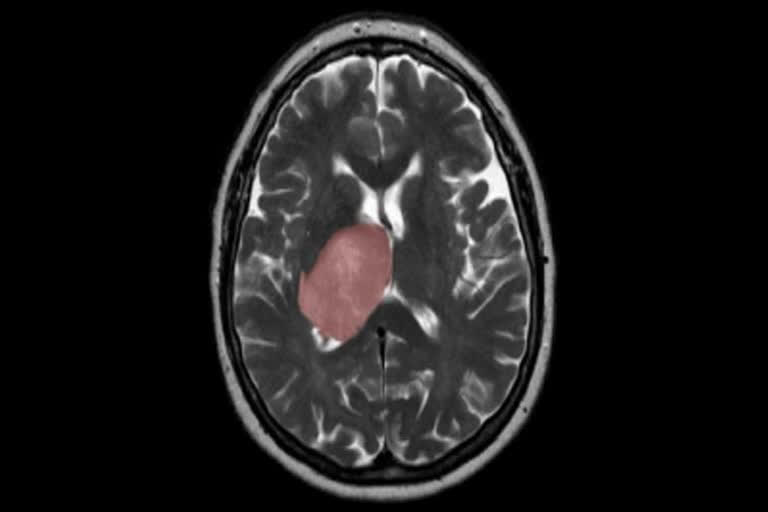New Delhi: A team of Indian scientists have found that cancer-causing virus Epstein Barr Virus (EBV) can infect the neuronal cells and drive various changes in biomolecules such as fatty acids, carbohydrates, and protein components, leading to diseases of the central nervous system as well as brain cancer.
This EBV virus is present in the human population and usually does not cause any harm, but it gets reactivated inside the body in some unusual conditions like immunological stress or immunocompetence. This may further lead to various complications like a type of blood cancer called Burkitt’s lymphoma, stomach cancer, multiple sclerosis, and so on.
Brain cancer in India
The incidence of central nervous system (CNS) tumors in India ranges from 5 to 10 per 100,000 population with an increasing trend and accounts for 2% of malignancies. According to a study, the incidence of central nervous system tumors in India ranges from 5 to 10 per 100,000 population with an increasing trend and accounts for 2% of malignancies.
Also read: IIT-Madras develops AI tool to predict cancer-causing genes
Although brain cancer is relatively rare in the country, it has a high morbidity and mortality even in young and middle aged individuals compared with other malignancies. As per some recent studies, the incidence of brain tumours in the country is on rise.
For instance, brain tumours were ranked as the 10th most common kind of tumour among Indians. The International Association of Cancer Registries (IACR) reported that there are over 28,000 cases of brain tumours reported in India each year and more than 24,000 people reportedly die in India due to brain tumours annually.
Involvement of EBV Virus in neurodegenerative diseases
Earlier studies provided links of EBV involvement in various neurodegenerative diseases. However, how this virus can affect the brain-cells and manipulate them is still not understood. In order to explore this link, a research team from IIT Indore utilized the Raman microspectroscopy technique to explore the possible impacts of a cancer-causing virus on brain cells.
Also read: Can oral sex cause throat cancer? Here's what you need to know
The technique based on Raman Effect is a simple, cost-effective tool to find sensitive chemical changes in biological samples. This research was supported by the Department of Science and Technology (DST) under FIST scheme. The study, published in the journal ACS Chemical Neuroscience, showed that there could be timely and gradual changes in various biomolecules in the neuronal cells under viral influence.
Additionally, these changes were distinct when compared to the changes observed in other supportive brain cells such as astrocyte and microglia. This group of scientists included a group leader from the Infection Bioengineering group at IIT Indore, Dr. Hem Chandra Jha, along with his students Omkar Indari, Shweta Jakhmola, and Meenakshi Kandpal.
This team worked in collaboration with another team which was led by Professor Rajesh Kumar of Material and Device Laboratory (Department of Physics), and included Dr. Devesh K. Pathak and Ms. Manushree Tanwar. The scientists found that some common biomolecular changes were observed at times in these cells.
These scientists observed that the lipid, cholesterol, proline, and glucose molecules increased in the cells under viral influence. These biomolecular entities could ultimately play pivotal roles in the virus taking control of body cells. Moreover, the study also provided insights into whether these biomolecular changes can be correlated to virus-associated impacts and linked to neurological complications.
Also read: Odisha scientist claims to have developed drug to cure breast cancer
“The research work aids in the understanding of EBV-mediated biomolecular changes in the various compartments of the central nervous system leading to better understanding of nervous system diseases,” said Dr. Hem Chandra Jha. Professor Rajesh Kumar said the study was also helpful in establishing the advantages of Raman microspectroscopy, a cost-effective and non-invasive technique, in carrying out studies on virus-associated cellular complications in clinical settings.
“It could provide an upper hand in analysing clinical samples in comparison to other techniques, which require advanced setups for studying the virus-associated changes in cells, tissues, and organs,” added Professor Kumar.



